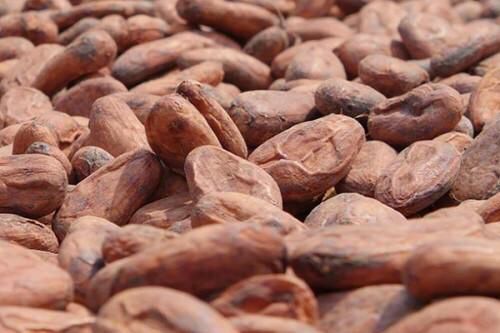As we move towards the end of the 2022-2023 cocoa season, which theoretically extends from August 1, 2022 to July 15, 2023, Cameroon estimates that the losses recorded due to fraudulent exports of its production to Nigeria, from the Southwest region, the country’s important production basin, at about FCFA 70 billion. The figure is revealed in a circular letter from the Minister of Commerce on “urgent safeguard measures to be implemented, with a view to eradicating the harmful phenomenon of massive and fraudulent exports” of Cameroon cocoa to Nigeria. The document was prepared after a crisis meeting, organized on June 13, 2023 in Yaoundé, between operators in the cocoa sector, law enforcement and officials of the Minister of Trade and the Directorate General of Customs.
” (…) It was found that under the 2022-2023 cocoa campaign, the volume of fraudulent exports, mainly to Nigeria, reached unprecedented levels, between 30,000 and 60,000 tonnes, or 10 to 20% of national cocoa production, representing a shortfall for the Public Treasury of nearly FCFA 10 billion, in terms of exit duties and export royalty, and a dry loss, in respect of currency repatriation,
In order to be able to stop this bleeding, one month before the end of the campaign, the member of the government took three main measures. First of all, it is the suspension, as a precautionary measure and until further notice, of exports of Cameroon cocoa to Nigeria. This decision, stresses the Minister, is based on “Article 10, paragraph 2 of the Law (…) of 18 April 2016 governing foreign trade in Cameroon, which provides that “the competent authority may limit or prohibit the export of a product when national supply needs so require”. This is what concerns cocoa, it should be recalled that local processing industries can no longer supply themselves with beans on the national market, due, in particular, to massive, fraudulent and uncontrolled exits to neighboring Nigeria”.
Anglophone crisis
In addition to the export ban, Luc Magloire Mbarga Atangana prescribes to the administrative authorities of the cocoa areas the identification of all cocoa exit points, then the establishment of check-points, “in the form of task forces bringing together all the administrations and structures involved in the cocoa marketing process”.
As a reminder, Nigeria’s siphoning of cocoa production in Cameroon goes back decades. “For 30 years, we have seen a lack of the government’s willingness to solve this problem. The Nigerians come to Kumba, Mamfe. They use Cameroonians. The State cannot tell us that it has no means to fight this phenomenon,” Kate Fotso already denounced in 2017. The CEO of Telcar Cocoa, local trader of the American Cargill and the first exporter of beans in Cameroon, spoke at a crisis meeting on the same subject.
But, according to operators in the cocoa sector, the phenomenon has worsened since the outbreak of separatist claims in the Northwest and Southwest regions of Cameroon (Anglophone crisis) at the end of 2016. From various sources, the porosity of the borders between Cameroon and Nigeria, then the competitive prices charged by Nigerian buyers also contribute to maintaining the siphoning of Cameroonian production.




